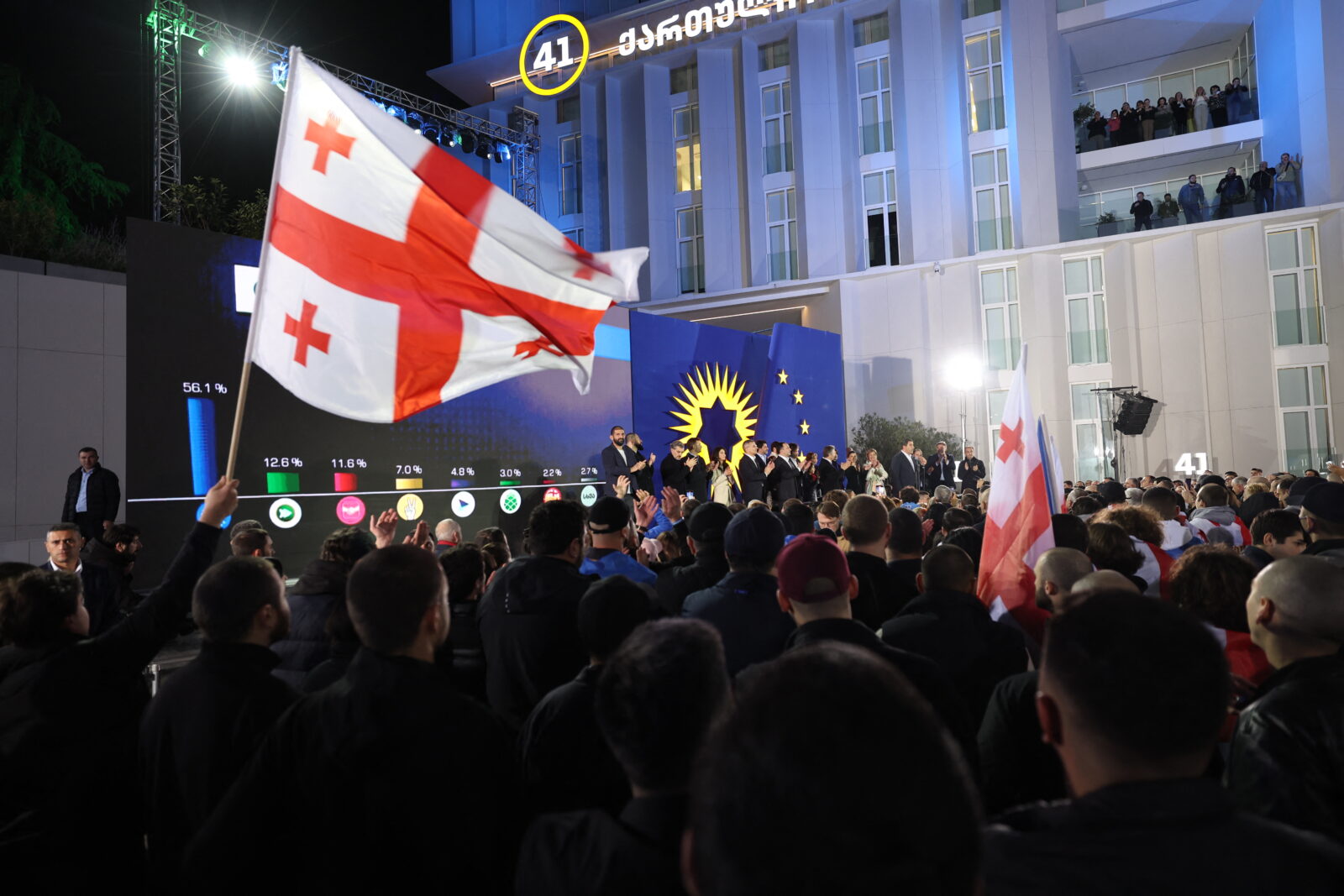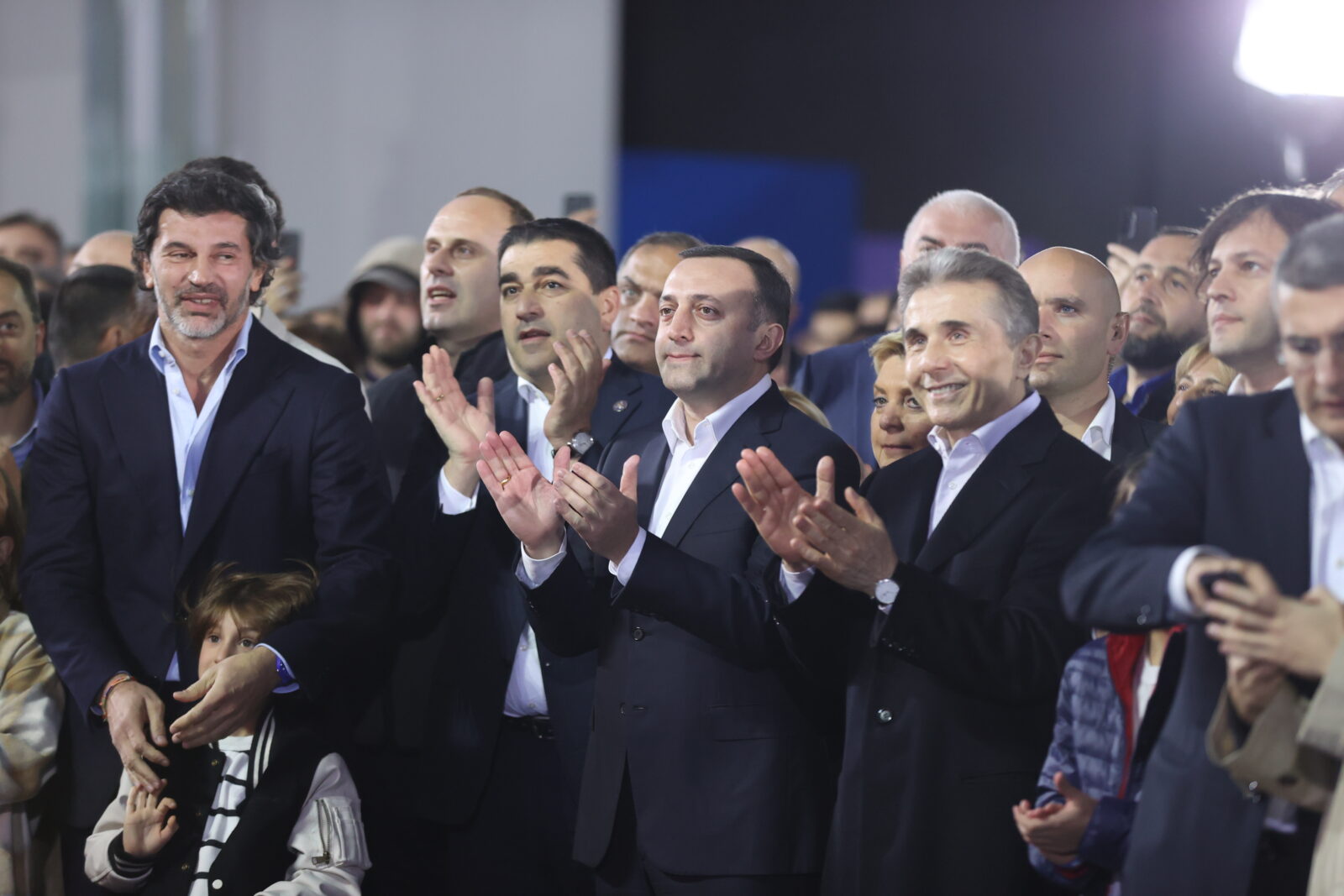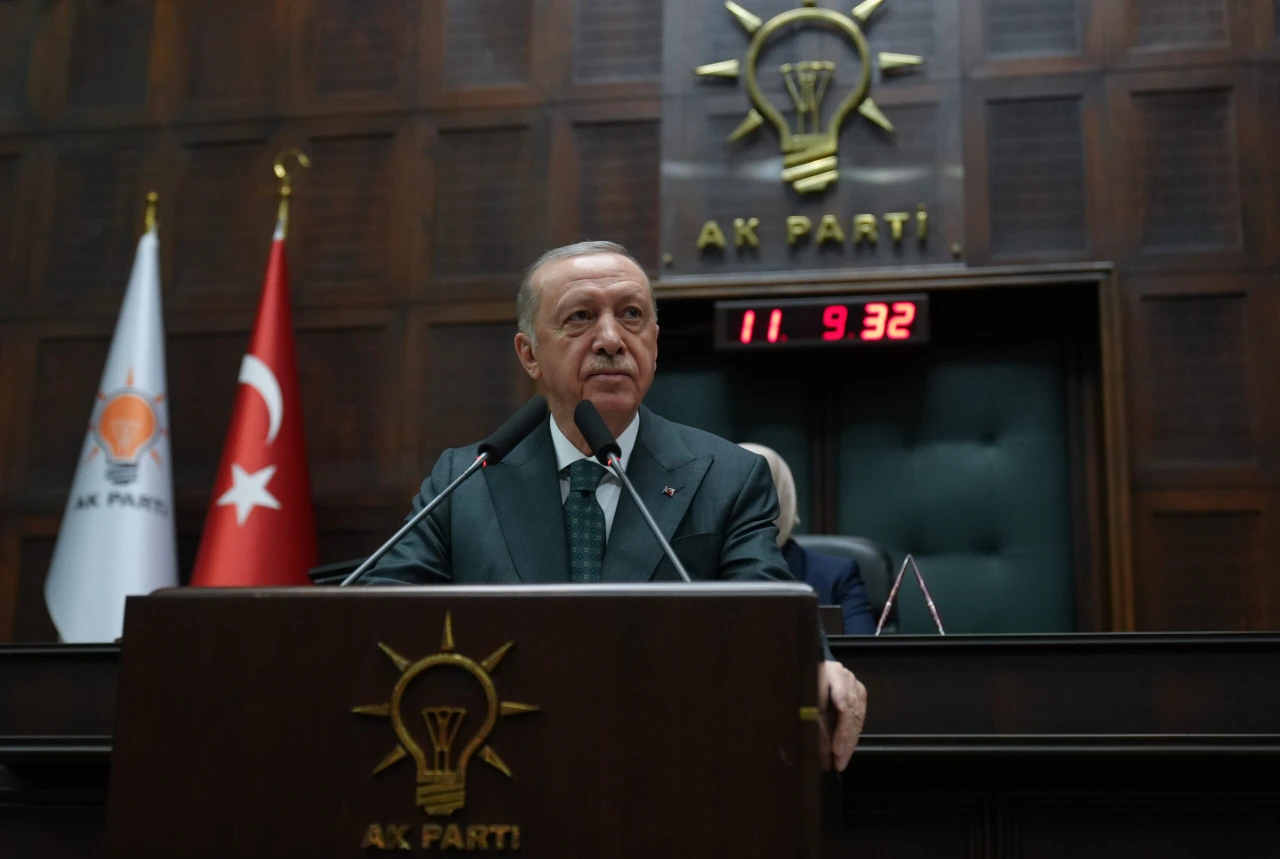Georgia’s President Zurabishvili calls for social uprising after pro-Russian party wins elections
 Georgia's President Salome Zurabishvili, accompanied by leaders of opposition parties, speaks during a press conference at the presidential palace in Tbilisi, a day after the parliamentary elections, October 27, 2024. (AFP Photo)
Georgia's President Salome Zurabishvili, accompanied by leaders of opposition parties, speaks during a press conference at the presidential palace in Tbilisi, a day after the parliamentary elections, October 27, 2024. (AFP Photo)
Georgian President Salome Zurabishvili on Sunday decried a “total falsification” of the country’s legislative elections and called for a protest on Monday to contest the official results that favored the ruling party.
“It was a total falsification of elections. I don’t recognize these elections. I call on people to stand together and say that we don’t recognize these elections,” Zurabishvili stated in a televised address one day after the voting concluded.
Zurabishvili also accused Russia of orchestrating the alleged electoral fraud, asserting that Georgia had fallen victim to a “Russian special operation.”
“We are witnesses and victims of a Russian special operation, a modern form of hybrid war against the Georgian people,” she said.
In a briefing following a day of consultations with opposition parties, Zurabishvili reiterated her refusal to accept the official election results.
She expressed gratitude to voters who supported Georgia’s European aspirations: “There were many of you. You won in these elections, and no one has the right to take this European future away from us.”
Zurabishvili characterized the situation as “unprecedented” and highlighted the implications of the alleged Russian interference. “On that day, we were deprived of our right to vote. These were Russian elections. They stole our electoral institution and our constitutional right to vote, including from our emigrants.”
EU urges investigation into ‘election irregularities’
Meanwhile, EU chief Charles Michel on Sunday urged an investigation into reported election “irregularities” in Georgia following a disputed vote that indicated a victory for the ruling party, which has faced accusations of aligning with Russia.
Jailed former president Mikheil Saakashvili has called for mass protests to contest the election results, with the pro-Western opposition denouncing the elections as “stolen.”

Critical test of democracy, says EU
The EU had previously warned that Saturday’s vote was a critical test of democracy in the Caucasus nation and would significantly influence Tbilisi’s prospects of joining the bloc. Michel expressed on X that authorities must “swiftly, transparently, and independently investigate and adjudicate electoral irregularities and allegations thereof.”
He emphasized, “These alleged irregularities must be seriously clarified and addressed.”
International observers reported that Saturday’s election was “marred by an uneven playing field, pressure, and tension.”
A mission from the EU Parliament raised concerns about “democratic backsliding,” citing instances of “ballot box stuffing” and “physical assaults” on observers.
Official results from over 99% of precincts indicated that the ruling Georgian Dream party secured 54% of the vote, while the main pro-Western opposition coalition trailed with 37.58%.
This outcome grants Georgian Dream 91 seats in the 150-member parliament, providing enough power to govern but falling short of the supermajority needed to implement a constitutional ban on all major opposition parties.

Georgian PM hails ‘impressive victory’
Prime Minister Irakli Kobakhidze hailed the results as an “impressive victory,” accusing the opposition of “undermining the country’s constitutional order” by challenging the legitimacy of his party’s win.
Georgia has seen mass demonstrations earlier this year against perceived government efforts to curtail democratic freedoms and shift the nation, with a population of four million, away from its pro-Western trajectory and toward Russia.
In power since 2012, Georgian Dream initially embraced a liberal pro-Western policy agenda but has shifted its stance in the past two years.
The party’s campaign has centered around a conspiracy theory involving a “global war party” allegedly controlling Western institutions and seeking to drag Georgia into the Russia-Ukraine conflict.
Given the historical context of Russia’s 2008 invasion, Georgian Dream has painted a narrative of an imminent war threat that only it can mitigate. The party’s controversial “foreign influence” law, aimed at civil society, triggered weeks of protests and was criticized as a Kremlin-style measure to suppress dissent.
This backlash led Brussels to freeze Georgia’s EU accession process, while Washington imposed sanctions on numerous Georgian officials.
Additionally, the ruling party has launched a campaign against sexual minorities, implementing measures that ban LGBTQ “propaganda,” nullify same-sex marriages conducted abroad, and outlaw gender reassignment.



